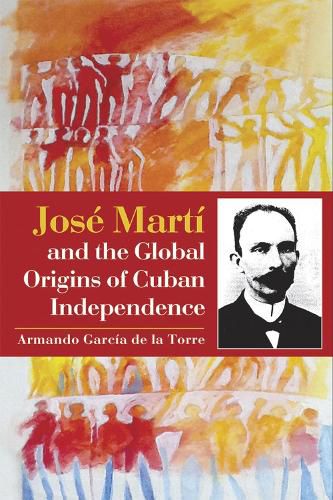Readings Newsletter
Become a Readings Member to make your shopping experience even easier.
Sign in or sign up for free!
You’re not far away from qualifying for FREE standard shipping within Australia
You’ve qualified for FREE standard shipping within Australia
The cart is loading…






A nationalist campaigner, civil rights advocate, diplomat, lecturer and orator, journalist, poet, author of children’s stories, visionary champion of anti-colonial Latin American and Caribbean thought, all are expressions of Jose Marti’s (1853-95) extraordinary life in fighting for Cuba’s definitive independence. This work opens a new path in studies of Marti’s efforts to build a modern democratic Cuba by widening the lens under which the Cuban hero has been examined. In joining these different facets of Marti and by going beyond the national and hemispheric, Garcia de la Torre introduces the largely ignored global influences and dimensions that marked the revolutionary’s work and ideas.
From Marti’s global histories for children to his adaptation of Hindu and Eastern conceptions, through a juxtaposition of The Bhagavad-Gita, to his relationships and inspirations from the African diaspora to the US Civil War and Ulysses S. Grant, Garcia de la Torre vividly reveals the global origins of Marti’s ideas regarding governance, citizenship, independence and spirituality. In bridging the familiar and the individual with larger global patterns and processes of the late nineteenth century, Jose Marti and the Global Origins of Cuban Independence gives birth to a modern Cuba understood from a truly global perspective.
$9.00 standard shipping within Australia
FREE standard shipping within Australia for orders over $100.00
Express & International shipping calculated at checkout
A nationalist campaigner, civil rights advocate, diplomat, lecturer and orator, journalist, poet, author of children’s stories, visionary champion of anti-colonial Latin American and Caribbean thought, all are expressions of Jose Marti’s (1853-95) extraordinary life in fighting for Cuba’s definitive independence. This work opens a new path in studies of Marti’s efforts to build a modern democratic Cuba by widening the lens under which the Cuban hero has been examined. In joining these different facets of Marti and by going beyond the national and hemispheric, Garcia de la Torre introduces the largely ignored global influences and dimensions that marked the revolutionary’s work and ideas.
From Marti’s global histories for children to his adaptation of Hindu and Eastern conceptions, through a juxtaposition of The Bhagavad-Gita, to his relationships and inspirations from the African diaspora to the US Civil War and Ulysses S. Grant, Garcia de la Torre vividly reveals the global origins of Marti’s ideas regarding governance, citizenship, independence and spirituality. In bridging the familiar and the individual with larger global patterns and processes of the late nineteenth century, Jose Marti and the Global Origins of Cuban Independence gives birth to a modern Cuba understood from a truly global perspective.